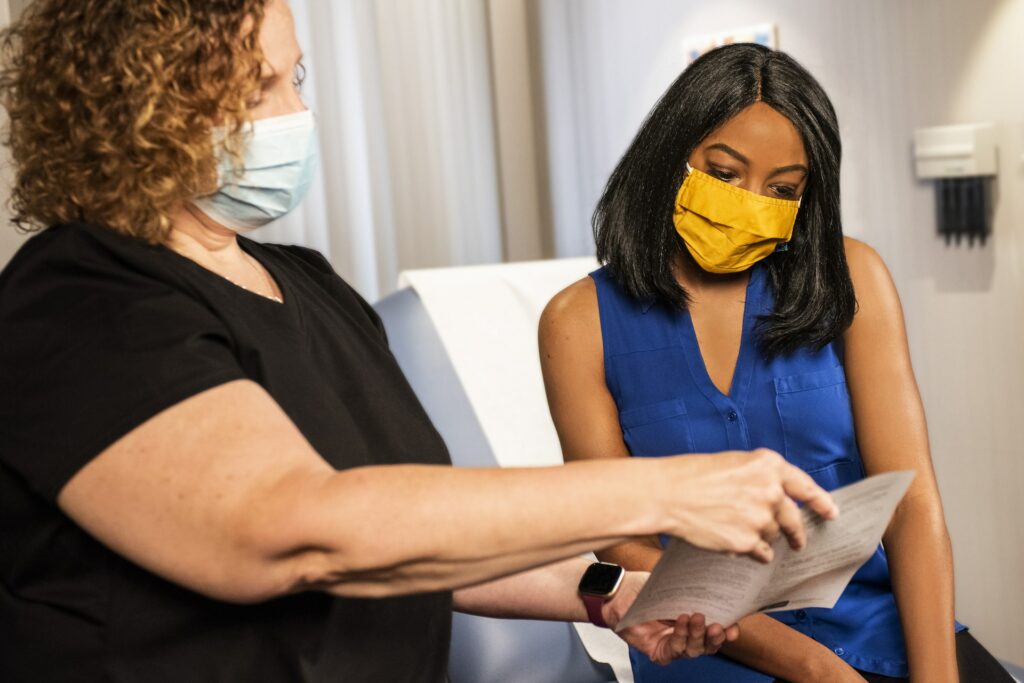The Relationship Between Mental Health and STDs: Understanding the Connection
The connection between mental health and sexually transmitted diseases (STDs) is multifaceted, with each affecting

Sexually transmitted diseases (STDs), also known as sexually transmitted infections (STIs), are infections that spread primarily through sexual contact. The Centers for Disease Control and Prevention (CDC) estimates that nearly 20 million new STD infections occur in the United States each year, with almost half of these cases occurring among young people aged 15-24. Early detection and treatment are essential to prevent complications and protect your health.
Today, we'll explore the risk factors for STDs and discuss how often you should get tested:
There are several factors that can increase your risk of contracting an STD, including:
Engaging in sexual activity without using a barrier method, such as condoms or dental dams, significantly increases the risk of contracting an STD.
The more sexual partners you have, the higher your risk of being exposed to STDs. Each new partner could potentially expose you to a new infection.
As mentioned earlier, young people aged 15-24 account for nearly half of all new STD infections. This could be attributed to a lack of knowledge about safe sex practices, impulsivity, or peer pressure.
Using drugs or alcohol can impair judgment and lead to risky behaviors, such as having unprotected sex or engaging in sexual activity with multiple partners.
If you've had an STD in the past, you may be at a higher risk of contracting another one. Some STDs can also increase your susceptibility to other infections.
Lastly, if your partner has an STD, your risk of contracting the infection is significantly higher.
The frequency of STD testing depends on several factors, including your age, sexual activity, and risk factors. Below are general guidelines for how often you should get tested:
The CDC recommends annual testing for chlamydia and gonorrhea for all sexually active women under the age of 25. These infections are more common in younger women and often don't cause noticeable symptoms, making it essential to test regularly.
Pregnant women should be tested for syphilis, HIV, and hepatitis B during their first prenatal visit. They should also be tested for chlamydia and gonorrhea if they are under 25 or have other risk factors.
MSM should be tested at least once a year for syphilis, chlamydia, gonorrhea, and HIV. More frequent testing (every 3-6 months) may be recommended for those who have multiple or anonymous partners, use drugs during sex, or have a partner who has an STD.
The CDC recommends that everyone between the ages of 13 and 64 get tested for HIV at least once in their lifetime. Those with risk factors or who engage in high-risk behaviors should be tested more frequently.
If you have any of the risk factors mentioned above, it's essential to get tested regularly, even if you don't fall into one of the specific categories listed. Talk to your healthcare provider about the appropriate testing schedule for your situation.
STDs are a significant public health concern, but early detection and treatment can help prevent complications and protect your health. By understanding the risk factors for STDs and getting tested regularly, you can take control of your sexual health and ensure that you and your partner stay safe. If you have any concerns about your risk for STDs or need more information about testing, don't hesitate to reach out to your healthcare provider.
Rapid STD Testing provides quick STD tests that only require a 15-minute lab visit on the same day. If you are looking for fast STD testing, just give us a call to immediately find a nearby lab and receive your results within 1-2 days!

No embarrassing exams, long waiting lines, or multiple visits. Just a quick lab visit for fast results.
Discover a lifestyle-focused approach to quality content at RapidSTDtesting.com. Unlike others, we don't rely on gimmicks or fabricated data to lure visitors. Our commitment goes beyond clicks – we're dedicated to answering the questions you search for online. With a team comprising medical experts and content specialists, our articles are meticulously crafted to promote STD testing, educate, and dismantle social stigmas.
Embrace a confidential atmosphere with our private testing options, ensuring your privacy is paramount. Every article is meticulously fact-checked and approved by medical advisors, guaranteeing accuracy and reliability. Our team, comprised of doctors and medical professionals, ensures that each piece of content serves a purpose – to inform, educate, and promote awareness.
Join us as we bridge the gap between medical expertise and lifestyle choices. RapidSTDtesting.com is your trusted source for informative, medically vetted content.